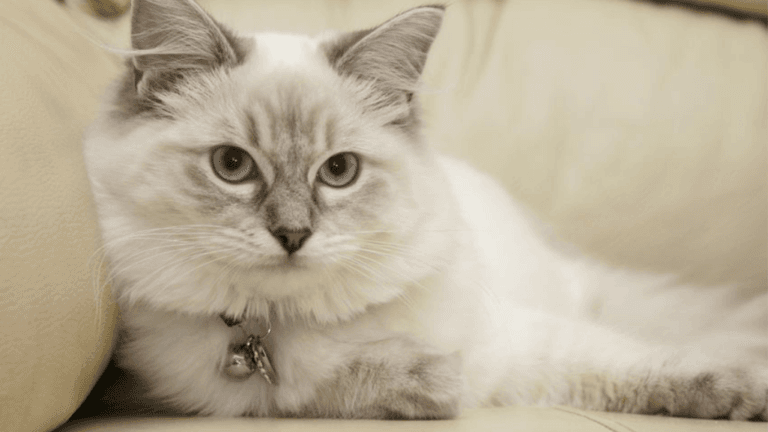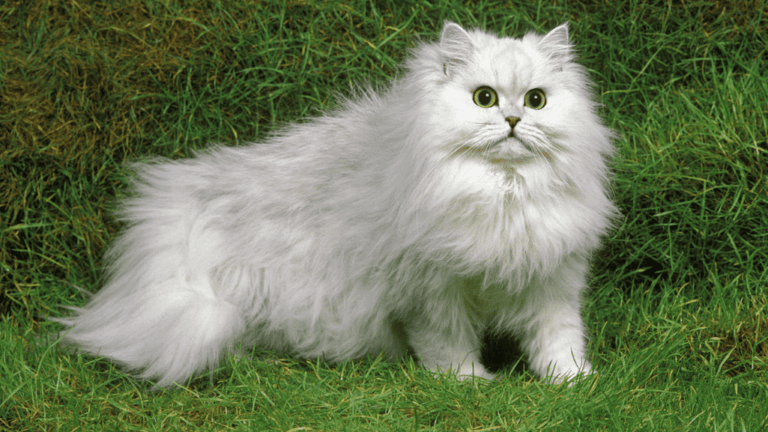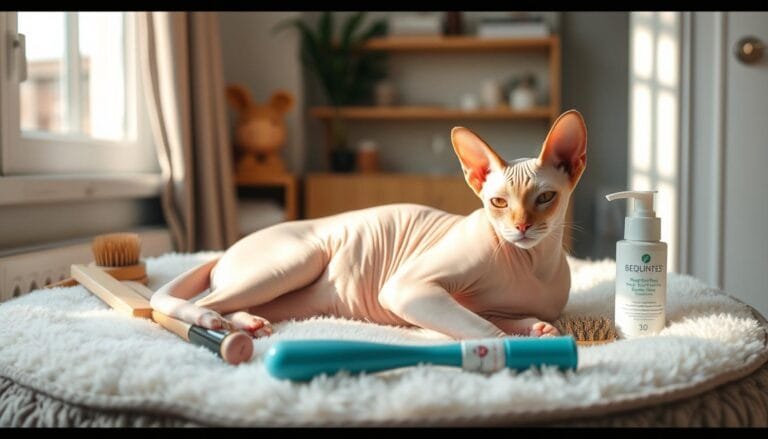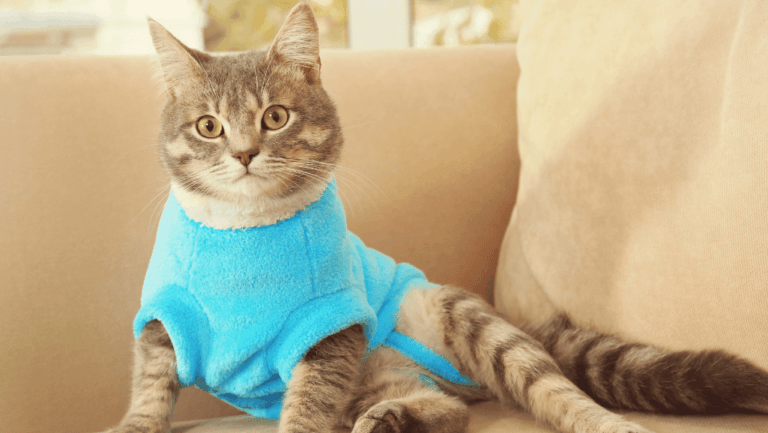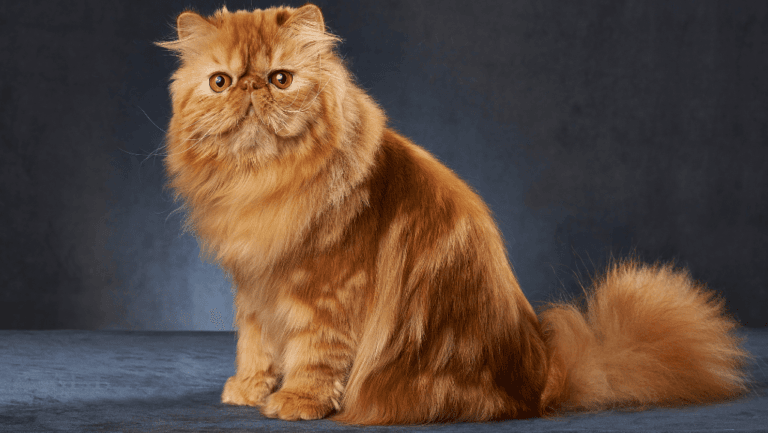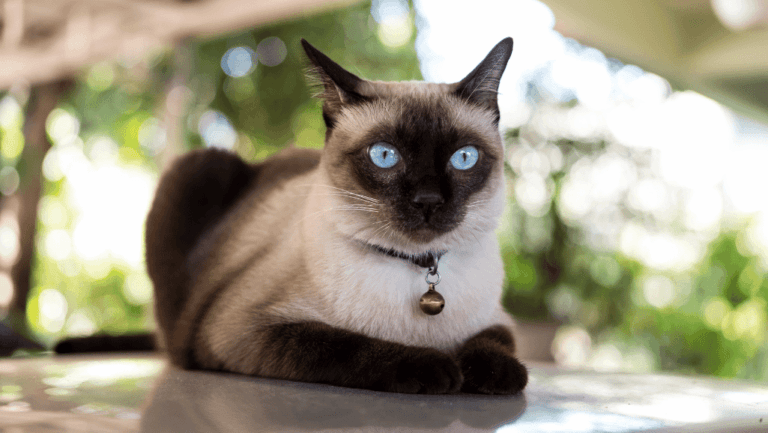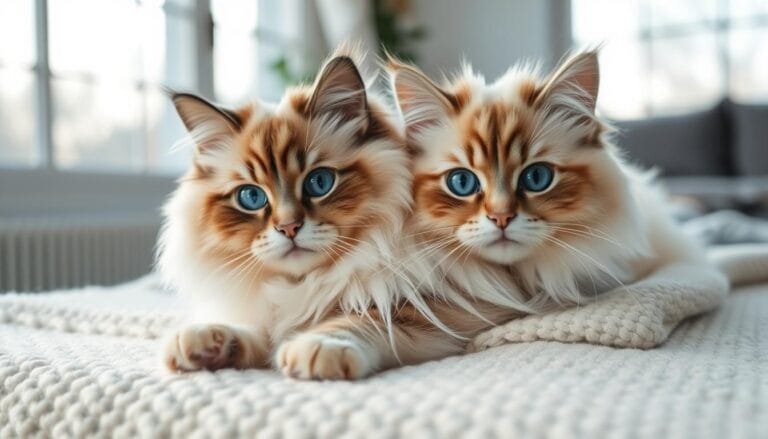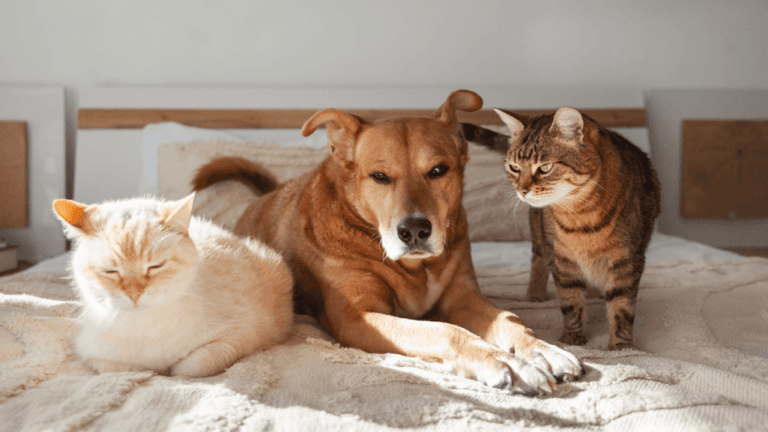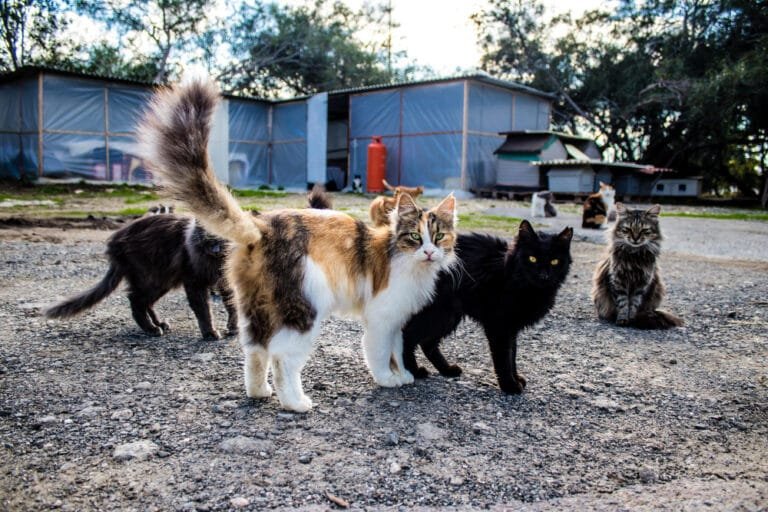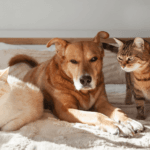Getting a cat can be very rewarding, especially for first-timers. With over 40 cat breeds, picking the right one can feel daunting. But, some breeds are perfect for beginners because they are easy-going, don’t need much grooming, and fit well in different homes.
When looking for the perfect cat, think about size, lifespan, and personality. For example, Maine Coon cats are big, weighing 9 to 18 pounds. Ragdolls are also big, up to 20 pounds. Siamese cats are smaller, weighing 6 to 14 pounds. American Shorthairs are great for families because they live long and don’t need much grooming.
As a new cat owner, you need to know what caring for a cat involves. You’ll need to feed, water, and clean the litter box regularly. You’ll also need to take your cat to the vet and make sure they have toys and scratching posts for fun and exercise.
Key Takeaways
- Over 40 different breeds of domestic cats are available for potential cat owners
- Maine Coon, Ragdoll, Siamese, and American Shorthair cats are popular choices for beginners
- Consider factors such as size, lifespan, temperament, and grooming requirements when choosing a cat breed
- Regular feeding, watering, litter box maintenance, and veterinary care are essential responsibilities of cat ownership
- Provide scratching posts, toys, and proper parasite control for your cat’s well-being
Why Cats Make Great Pets for First-Time Owners
Cats are a great choice for first-time pet owners because they are easy to care for. They are independent and can entertain themselves. This makes them perfect for people with busy lives or little time to spend with a pet.
Having a cat can also be good for your health. Studies show that cat owners are less likely to get heart disease and strokes. They also have a lower risk of developing allergies to cats later in life.
Cats can also help you relax. Their purring can lower your blood pressure and reduce stress. This makes them great companions for those looking for emotional support.
| Benefit | Description |
|---|---|
| Low Maintenance | Cats require minimal attention and care compared to dogs |
| Cost-Effective | Cats are generally less expensive than dogs in terms of food, vet bills, and supplies |
| Independent | Cats can entertain themselves and are comfortable being left alone for several hours |
| Health Benefits | Cat ownership is associated with reduced stress, lower blood pressure, and a decreased risk of heart disease |
| Longevity | Cats have a longer lifespan compared to many other pets, living up to 20 years on average |
When adopting a kitten or choosing a breed, consider their personality and grooming needs. Breeds like Ragdolls and British Shorthairs are known for being calm and affectionate. They are perfect for first-time owners who want a gentle friend.
Cats are low maintenance, but they still require regular veterinary check-ups, a balanced diet, and plenty of love and attention to thrive.
Even though cats are easy to care for, they still need proper care to stay healthy and happy. Regular grooming, a balanced diet, and vet visits are key. These steps ensure your cat lives a long and joyful life.
Understanding the Responsibilities of Cat Ownership
Getting your first cat is exciting, but knowing your duties is key. This guide will help you with feeding, cleaning the litter box, and vet visits. Knowing these steps will help you give your cat a happy home.
Feeding and Watering
Good food is crucial for your cat’s health. Pick a high-quality food that fits your cat’s needs. Talk to your vet about how much and when to feed. Make sure your cat always has clean water to drink.
Litter Box Maintenance
Keeping the litter box clean is important for your cat’s health. Here are some tips:
- Scoop the litter box daily to remove waste and clumps
- Completely replace the litter every 1-2 weeks
- Clean the litter box with mild soap and water when replacing the litter
- Provide one litter box per cat, plus an extra
- Place litter boxes in quiet, easily accessible locations
Regular cleaning keeps your home smelling good and helps your cat use the litter box right. This prevents accidents and bad habits.
Veterinary Care
Regular vet visits are a big part of caring for your cat. Most cat owners take their pets to the vet once a year. This helps catch health problems early and treat them well.
At vet visits, your cat gets shots, parasite prevention, and dental care. Your vet will also check your cat’s weight and health. They’ll give advice on food and exercise.
Even with regular vet visits, unexpected costs can happen. While some owners have pet insurance, others save money for vet bills. Being ready for vet costs helps ensure your cat gets the best care.
As a new cat owner, knowing your duties is essential. Follow this guide and ask your vet for help. This way, you’ll be a confident and caring cat parent.
Factors to Consider When Choosing a Cat Breed
Choosing the right cat for your home is key. Look at cat temperaments, personalities, and varieties for beginners. This helps you smoothly start your cat-owning journey.
Personality and Temperament
When picking a cat, its personality and temperament matter a lot. Beginners should look for breeds that are friendly, affectionate, and easy to get along with. Some top picks for beginners include:
- Ragdolls: Known for their laid-back, gentle, and easy-going personalities
- Maine Coons: Friendly, sociable, and adaptable cats that get along well with families
- British Shorthairs: Calm, undemanding, and affectionate companions
Grooming Requirements
Different cats need different grooming. Look for breeds that are easy to care for. Some good choices include:
- American Shorthairs: Their short, dense coat requires minimal brushing
- Siamese: Despite their short coat, they shed minimally and are easy to groom
- Bengals: Their short, soft coat is low-maintenance and requires occasional brushing
Health Concerns
It’s crucial to check a cat’s health before choosing. Some breeds face more health issues, which can be costly and stressful. Consider these points:
- Lifespan: Breeds like Bengals and Birmans live longer (around 15-16 years) than Siamese cats (average of 12 years)
- Weight: Maine Coons are bigger, weighing up to 18-20 pounds. Siamese and Birman cats are smaller, under 14 pounds
- Breed-specific health issues: Talk to a vet about common health problems in your preferred breeds
| Breed | Average Lifespan | Typical Weight |
|---|---|---|
| Maine Coon | 13-17 years | 18-20 pounds |
| Bengal | 16 years | 9-14 pounds |
| Siamese | 12 years | Less than 14 pounds |
| Birman | 15 years | 10 pounds |
Think about personality, grooming, and health when picking a cat. This way, you’ll find the perfect cat for your lifestyle. It will make your first time as a cat owner rewarding and fun.
Ragdoll Cats: Gentle Giants Perfect for Families
Low-maintenance cat breeds like Ragdolls are great for families. They are friendly and easy-going, making them perfect for homes with kids and pets.
Ragdoll cats are known for being laid-back and loving. They love to be held and will often fall into their owner’s arms. This shows they trust and are happy. They are safe around young children, even babies.
“Ragdoll cats are beloved for their habit of collapsing into the arms of the person holding them, showcasing a laidback and human-friendly personality.”
Ragdoll cats are not only gentle but also enjoy playing and getting attention. They will often welcome you at the door and follow you around. Despite their size, they fit well into families and love the attention they get.
| Breed | Weight | Personality |
|---|---|---|
| Ragdoll | Up to 20 pounds | Gentle, affectionate, laid-back |
| Maine Coon | Up to 20 pounds | Gentle giants, playful, loving |
| American Shorthair | 8-15 pounds | Friendly, laid-back, gentle |
Ragdoll cats are also easy to care for. Their soft coat needs regular brushing to avoid matting. But they don’t need frequent baths or long grooming sessions. This makes them great for busy families who want a pet without extra grooming work.
Adding a Ragdoll cat to your family needs a loving home. They love people and need lots of attention. Families who can give them love and care will find Ragdolls to be wonderful companions.
American Shorthair: A Classic Choice for First-Time Owners
The American Shorthair is a great choice for those looking for a friendly cat. They are easy to care for, making them perfect for new pet owners. These cats are loving and don’t need too much attention.
The American Shorthair was one of the first five breeds recognized by the Cat Fanciers’ Association in 1906. They are loved for their friendly and adaptable nature. They fit well in many homes, from small apartments to big houses.
Adaptable and Independent Nature
One great thing about American Shorthairs is how well they adapt to different situations. They can handle being alone for a bit, which is good for busy people. Yet, they are also very loving and enjoy spending time with their owners.
Mark Twain, a notable cat lover, owned American Shorthair cats and appreciated their endearing qualities.
These cats also get along well with other pets, like dogs and cats. Their calm nature makes them easy to live with, even in homes with many pets.
Low-Maintenance Grooming
Another good thing about American Shorthairs is how easy they are to groom. Their short, dense fur comes in many colors. A weekly brush and some nail and dental care keep them looking great.
Even though they are easy to care for, American Shorthairs need some attention. Playing with them for 10-15 minutes, twice a day, keeps them happy and healthy. Playing with them helps strengthen your bond.
| Characteristic | American Shorthair |
|---|---|
| Height | 8-10 inches |
| Weight | 10-15 pounds |
| Lifespan | 15-20 years |
| Temperament | Affectionate, bold, sociable |
| Intelligence | High |
| Shedding | Normal |
| Playfulness | Medium |
| Energy Level | Active |
| Vocal Level | Normal |
| Coat Length | Short |
American Shorthairs are usually healthy, but they can get fat and have heart problems. Regular vet visits, a good diet, and exercise can help them stay healthy and happy.
In short, the American Shorthair is a great choice for first-time cat owners. They are friendly, adaptable, and easy to care for. These cats make wonderful pets for new owners and families.
Maine Coon: Friendly Felines with Dog-Like Personalities
Maine Coons are great for beginners. They are friendly and easy to care for. They are perfect for families with kids and for those living in apartments.
Maine Coons are big cats, with males over 20 pounds. They love people and get along with other pets, like dogs. They show love by head butting and wanting to be around humans.
“Maine Coons are like Lay’s potato chips – you can’t have just one! Their goofy and entertaining personalities make them irresistible.”
Maine Coons act like dogs in many ways. They play fetch, enjoy water, and can even walk on a leash. They are very social and fun to be around.
They have long, beautiful fur that’s easy to take care of. Brushing them 2 to 3 times a week keeps their coat looking good. A Furminator brush is great for their fur.
| Characteristic | Description |
|---|---|
| Size | One of the largest domesticated cat breeds |
| Weight | Can reach over 20 pounds |
| Sociability | Gets along well with other pets, including dogs |
| Grooming | Requires brushing 2-3 times per week |
| Life Expectancy | 10 to 15 years |
Maine Coons are great family pets. Their kittens are especially cute. They are easy to take pictures of because they always look good.
If you want a Maine Coon, look for private rescues. They know the cats’ personalities and if they get along with kids and pets. Maine Coons are perfect for beginners who want a loving pet.
Siamese Cats: Vocal and Affectionate Companions
Looking for a loving, talkative, and captivating feline friend? The Siamese cat is perfect. They are easiest cats to care for, making great companions for both new and experienced cat owners. Known for their striking looks, playful nature, and loyalty, Siamese cats are a joy to have around.
Siamese cats are very affectionate and social. They show their love through purring, meowing, and even following you around. They are also very smart and curious, needing activities to keep them happy and well-behaved.
Striking Appearance and Blue Eyes
The Siamese cat’s blue eyes are truly mesmerizing. Their sleek build and short, fine coat make them a beautiful sight. They come in four classic colors:
- Seal point (most common)
- Chocolate point
- Blue point
- Lilac point
While they shed, regular brushing helps keep their coat in good shape. This makes them a good choice for many homes.
Playful and Intelligent Personality
Siamese cats are lively and very intelligent. They can learn tricks like jumping through hoops and sitting on command. They love to interact and do well with other cats if left alone.
Thinking of getting a Siamese cat? Remember, they need lots of playtime and mental stimulation. Engaging toys and puzzles will keep them happy and well-behaved.
| Compatible Cat Breeds | Compatible Dog Breeds |
|---|---|
| Maine Coons | Beagles |
| Ragdolls | Cocker Spaniels |
| Siberians | Pugs |
| Abyssinians | Boxers |
| Persians | Golden Retrievers |
| Ragamuffins |
Siamese cats may face health issues like bladder problems and skin issues. A balanced diet and regular vet visits can keep them healthy. This way, your Siamese cat will be a happy and low-upkeep feline pet for many years.
British Shorthair: Laid-Back and Easygoing Cats
Choosing the right cat for beginners is easy with the British Shorthair. They are adaptable and perfect for first-time pet owners. These cats are both social and independent, making them great companions.
British Shorthairs are known for their calm and friendly nature. They love to play with people and kids but don’t need constant attention. They enjoy sitting on laps but don’t mind being left alone.
They are a popular choice for many, ranking 6th in 2021. Their easy-going nature and adaptability make them a favorite in many homes.
“British Shorthairs are relatively healthy cats but are prone to obesity, which can lead to chronic health conditions like hypertension, diabetes, and osteoarthritis.”
British Shorthairs are generally healthy, living 14 to 20 years. But, they can get certain health issues like heart problems. Regular vet visits are key to keeping them healthy.
One of the best things about British Shorthairs is how little they need grooming. They only need weekly brushing and nail clipping. This makes them perfect for busy people or those new to cat care.
They are known for being friendly and patient, great for families and other pets. They are sturdy and calm, weighing 13 to 18 pounds.
| Breed | Lifespan | Weight | Grooming |
|---|---|---|---|
| British Shorthair | 14-20 years | 13-18 lbs | Weekly brushing |
| Ragdoll | 12-17 years | 10-20 lbs | Bi-weekly brushing |
| Maine Coon | 12-15 years | 8-18 lbs | Daily brushing |
Compared to other breeds, British Shorthairs live longer and need less grooming. This makes them a great choice for those wanting a low-maintenance pet.
In summary, the British Shorthair is perfect for first-time cat owners. They are laid-back, easy to care for, and adapt well to different homes. Choosing a British Shorthair means you get a loving and easy-going pet without the hassle of high-maintenance care.
Best Cats for Beginners: Other Notable Breeds to Consider
There are many cat breeds perfect for first-time owners. These cats are easy-going, adaptable, and don’t need much grooming. They’re great for those new to owning a cat.
Birman Cats
Birmans are gentle and love people, making them ideal for beginners. They have long, soft hair that needs regular grooming. Birmans are very affectionate and bond strongly with their owners.
Abyssinian Cats
Abyssinians are playful and curious, perfect for beginners who can keep them active. They’re intelligent and one of the oldest breeds. Abyssinians are also hypoallergenic, which is good for those with allergies.
Persian Cats
Persians are known for their beauty and sweet nature. They’re the most popular breed for a reason. Despite their high-maintenance look, Persians are calm and easy to get along with. They’re low-energy and fit well into various homes.
Choosing the right beginner-friendly cat is key. Consider their personality, grooming needs, and health. Pick a breed that fits your lifestyle and preferences for a strong bond with your new cat.
| Breed | Personality | Grooming |
|---|---|---|
| Birman | Gentle, friendly, affectionate | Frequent grooming required |
| Abyssinian | Active, playful, curious | Minimal grooming needed |
| Persian | Calm, easy-going, adaptable | High-maintenance grooming |
Adopting vs. Buying: Finding Your Perfect Feline Friend
Choosing between adopting a cat from a shelter or buying from a breeder is a big decision. Both paths have their benefits, depending on what you value most. Let’s look at the good things about adopting and the things to think about when buying from a breeder.
Advantages of Adopting from a Shelter
Adopting a cat from a shelter is a great choice. It’s often cheaper than buying from a breeder. Shelters have cats of all kinds, so you can find the perfect one for you.
Shelter cats usually come with important health care done already. This saves you money and time. By adopting, you also help reduce the number of cats without homes. It’s a rewarding way to give a loving home to a cat in need.
Responsible Breeders and Purebred Cats
If you want a specific breed, buying from a responsible breeder might be best. Good breeders offer health guarantees and initial vet care. They focus on breeding healthy, happy cats.
But, it’s key to find a breeder who is registered and ethical. Reading reviews and checking their reputation is important. Remember, purebred cats can have health issues, so regular vet visits are crucial.
| Factor | Adopting from a Shelter | Buying from a Breeder |
|---|---|---|
| Cost | Generally lower adoption fees | Higher purchase price and ongoing expenses |
| Health | Often spayed/neutered, vaccinated, and microchipped | Health guarantees and initial veterinary care provided |
| Breed Options | Wide variety of ages, breeds, and personalities | Specific breeds available, but may be more susceptible to genetic health issues |
| Ethical Considerations | Helps reduce homeless cat population and supports shelters | Responsible breeders prioritize ethical practices, but research is crucial to avoid unethical breeders |
Whether you adopt or buy a cat, the most important thing is to give them a loving home. Think about what you want and what you can commit to. By considering both options, you can make a choice that fits your values and ensures a happy life for your cat.
Preparing Your Home for Your New Cat
As a first-time cat owner, making your home ready for your new cat is key. This guide helps you create a safe and cozy space for your kitten.
Start by checking your home for dangers. Look for loose carpet threads that cats might eat. Make sure wiring is safe to avoid electrical shocks or fires. Also, remove things like bug traps and small toys that could harm your cat.
Check your plants for ones that are toxic to cats. Remove lilies, sago palms, and aloe vera. Seal any holes or crawlspaces to keep your cat safe.
The bathroom is where the litter box goes. Keep cleaning chemicals away and always close the toilet lid. Make sure shelves and windowsills are safe for your cat to explore.
Install screens on windows to keep your cat from falling. Don’t leave food out where your cat can get it.
You’ll need to get some important supplies. These include:
- Food and water bowls
- High-quality, age-appropriate cat food
- Litter box and cat litter
- Scratching pads or posts
- Interactive toys for mental stimulation
- Comfortable bedding
- Cat tower or perch for climbing and surveying their domain
- Grooming tools like brushes and nail clippers
When you bring your cat home, introduce them slowly. This is especially important if you have kids or other pets. Give them a quiet, safe spot to adjust. Spend time playing, grooming, and showing love to your new friend.
Remember, caring for a cat includes vet visits. Shelter cats often get health checks and shots before you adopt them. Kittens need their first shots at eight to nine weeks, with more shots later. Spaying or neutering is best done early to prevent unwanted litters and health issues.
Find a good vet and think about pet insurance. By following this guide and creating a loving home, you’ll start a wonderful journey with your new cat.
Conclusion
Choosing the right cat breed as a first-time owner is key for a happy pet experience. Think about the cat’s personality, grooming needs, and how well it fits your lifestyle. Easy-going cat breeds like Ragdolls, American Shorthairs, and British Shorthairs are great for beginners. They are calm and easy to adapt to.
Being a cat owner means more than just loving them. You must feed them right, keep their litter box clean, and take them to the vet regularly. Also, make your home ready for your new cat. This includes a cozy sleeping spot, fun toys, and a safe place to play.
Adopting from a shelter or buying from a good breeder takes time and research. Pick a breed that fits your life and preferences. With love and care, your cat will become a beloved family member. Knowing your cat’s needs and giving them a loving home is the secret to successful pet ownership.








